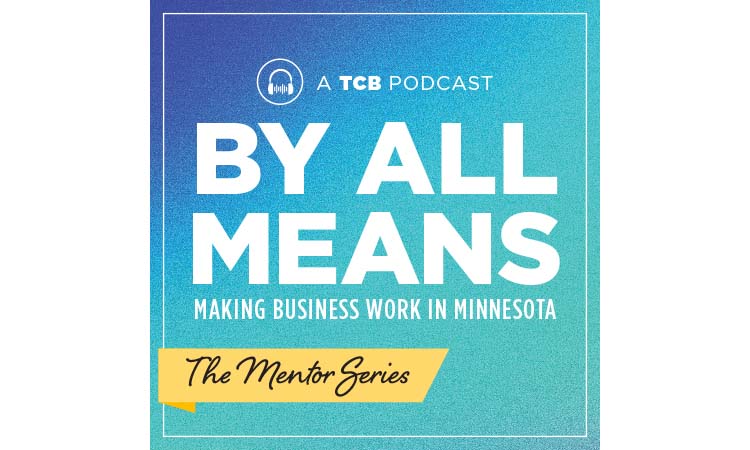The latest season of the TCB podcast, titled By All Means, features conversations between emerging founders from Minnesota and experienced entrepreneurs. These discussions provide valuable insights into various aspects of building successful businesses, including fundraising, marketing, and organizational culture. The exchanges reveal practical advice as well as deeper reflections on leadership and mental health.
Key Lessons from Season Highlights
The podcast showcases eight significant lessons drawn from the experiences of successful founders. Each lesson emphasizes different facets of entrepreneurship, highlighting not only the practical skills needed but also the mindset necessary for lasting success.
One of the standout insights comes from Chuck Runyon, co-founder of Anytime Fitness. He emphasizes that as a company grows, the role of its leaders must evolve. “Leaders build teams. Teams build the business and then deliver that culture,” he explains, underscoring the importance of adaptability in leadership.
Another crucial piece of advice from Dan Bastian, co-founder of Angie’s Boomchickapop, relates to the mindset surrounding business exits. “I tell startups all the time: our focus was never about being acquired. Until we were ten years into it, we had no understanding of that world. It was all about making the best product and providing the best service,” he states. This perspective encourages entrepreneurs to focus on quality rather than merely pursuing acquisition opportunities.
Understanding financial management is also critical. Sue Remes, a beauty industry consultant, asserts, “You have to know where the money is. I can’t tell you how many entrepreneurs I’ve met with who said, ‘I just want to make products. I don’t want to do the business side.’” Her advice reinforces that without financial acumen, sustainable growth becomes nearly impossible.
Alternative Paths to Growth
The discussions also touch on alternative avenues for business expansion. Maia Haag, founder and president of I See Me!, shares her experience of operating without venture capital. “Venture capital may have helped us grow faster…but we’ve been a highly profitable business without it,” she notes. Haag emphasizes that growth can be achieved through careful investment in marketing and product development rather than relying solely on external funding.
Understanding customer needs remains a cornerstone of successful business strategies. Charlie Kratsch, founder and CEO of Infinite Campus, advises entrepreneurs to focus on what resonates with clients. He states, “You can be driven by mission, but at the end of the day, when you’re out trying to sell that product or service, it comes down to making the business case for the potential customer. Better, faster, cheaper.”
Emotional engagement also plays a significant role in customer loyalty. Janet Johanson, founder and board member of FB Solutions Group, emphasizes, “What I learned over time was, customers stayed with us for the knowledge, but they initially bought from us because of emotion.” Her insights highlight the importance of connecting on a personal level with consumers.
Confidence in one’s expertise is another critical factor. Carson Kipfer, co-founder of SportsEngine, encourages entrepreneurs to recognize their value. “Think about how you are telling your story to the market. You have to act as if you are the person, even if you don’t feel like it at this exact moment,” he advises, reminding founders to give themselves credit for their accomplishments.
Finally, Hannah Barnstable, founder and CEO of Seven Sundays, stresses the significance of networking. “We rely heavily on people who’ve been there and done that,” she states. Building relationships with peers can provide invaluable support, especially during challenging times.
The full series of By All Means: The Mentor Series is available on most major podcast platforms, offering aspiring entrepreneurs a rich resource for guidance and inspiration.
